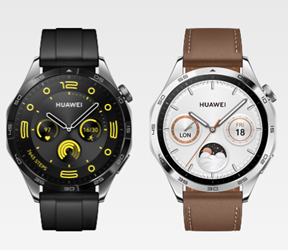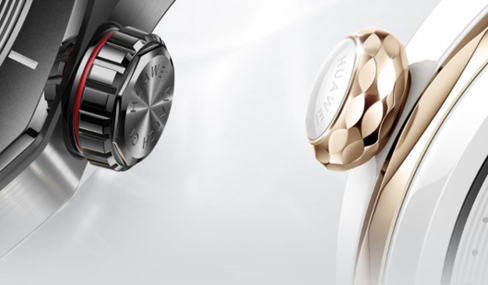Can a Sports Smartwatch Replace Your Fitness Tracker?
When considering your fitness goals, choosing the right device to track your progress is crucial. A sports smartwatch and a fitness tracker each offer unique benefits, but can a sports smartwatch truly replace your dedicated fitness tracker? This question has sparked debate among fitness enthusiasts and tech lovers alike. Both devices promise to keep you informed about your health, but understanding their key differences can help you decide which one suits your needs better. This guide will explore the essential features, pros, and cons of sports smartwatches and fitness trackers, helping you make an informed choice that aligns with your fitness goals and lifestyle.

What Are the Key Differences Between Sports Smartwatches and Fitness Trackers?
Features Comparison: Tracking Capabilities
Tracking capabilities are at the heart of both sports smartwatches and fitness trackers. While fitness trackers focus primarily on health metrics like steps, heart rate, and sleep patterns, sports smartwatches offer a broader range of features. They can track activities like swimming, cycling, and running with more detailed metrics such as GPS mapping, altitude, and even VO2 max. Additionally, smartwatches often include smart notifications, music control, and mobile payment options, making them more versatile. However, if your primary concern is accurate step counting and heart rate monitoring, a fitness tracker may suffice, offering simplicity and focus without the extra features of a smartwatch.
Battery Life and Durability
Battery life is a significant differentiator between these devices. Fitness trackers typically have longer battery life, often lasting a week or more on a single charge due to their simpler functionality. In contrast, sports smartwatches, with their advanced features, tend to have shorter battery life, ranging from one to three days. Durability also varies; fitness trackers are generally more rugged and water-resistant, designed to withstand daily wear and tear. Sports smartwatches, while durable, often include delicate screens that require extra care. Understanding your daily routine and how much you rely on your device for continuous tracking will help you determine which device's battery life and durability meet your needs.
Design and Comfort
Design and comfort are essential considerations when choosing between a sports smartwatch and a fitness tracker. Fitness trackers are typically sleeker, lighter, and more minimalist in design, making them comfortable for all-day wear, especially during sleep. They are often available in a variety of styles, from sporty to more casual looks. Sports smartwatches, on the other hand, tend to be bulkier due to their larger screens and additional features. While this makes them more visible and accessible during workouts, it may also make them less comfortable for prolonged wear. If style and comfort are top priorities, the streamlined design of fitness trackers might be more appealing, whereas those seeking a more robust, multifunctional device may opt for a sports smartwatch.
Which One Suits Your Fitness Needs Better?
Casual Fitness Enthusiast vs. Professional Athlete
The choice between a sports smartwatch and a fitness tracker largely depends on your fitness level and goals. For casual fitness enthusiasts, a fitness tracker offers all the essential features to monitor daily activities like step counting, calorie tracking, and basic heart rate monitoring. It's easy to use and doesn't overwhelm with unnecessary functions. However, for professional athletes or those training for specific sports, a sports smartwatch is the better option. It provides advanced metrics, GPS tracking, and specialized features like altitude tracking and training load analysis, which are essential for optimizing performance. Whether you're aiming to maintain a healthy lifestyle or push your limits, aligning the device's capabilities with your fitness level is key.
Long-Term Goals and Health Monitoring
Your long-term health and fitness goals should also guide your decision. If your focus is on maintaining daily activity levels and tracking basic health metrics over time, a fitness tracker is an excellent tool. It provides consistent data with minimal maintenance, allowing you to monitor trends in your health. However, if you're looking to achieve specific fitness milestones, like training for a marathon or improving athletic performance, a sports smartwatch offers more comprehensive tracking and analytics. These devices can provide insights into your progress and help you adjust your training regimen accordingly. Ultimately, the choice depends on whether you prioritize simplicity and ease of use or seek a more detailed and dynamic fitness tracking experience.

How to Choose Between a Sports Smartwatch and a Fitness Tracker?
Identifying Your Fitness Priorities
Before making a decision, it's crucial to identify your fitness priorities. Ask yourself what you want to achieve with your device. Are you looking to monitor your daily activity and ensure you're meeting general health guidelines, or do you have specific fitness goals, like improving your running pace or tracking your progress in various sports? Understanding your priorities will help you determine whether the comprehensive features of a sports smartwatch or the focused functionality of a fitness tracker is the better fit. For instance, if step counting and heart rate monitoring are your main concerns, a fitness tracker will meet your needs. However, if you're interested in multi-sport tracking and detailed health insights, buy watch gt5 pro is the more suitable choice.
Matching Features to Your Lifestyle
Your lifestyle also plays a significant role in this decision. Consider how you plan to use the device daily. If you prefer a minimalist approach and want a device that seamlessly integrates into your routine without constant attention, a fitness tracker might be ideal. These devices are designed for simplicity and ease of use. On the other hand, if you want a device that can keep up with a busy, active lifestyle, offering notifications, music controls, and advanced tracking, a sports smartwatch may be the better choice. Reflecting on your daily activities and how a fitness device can enhance your life will help you choose a product that aligns with your habits and preferences.
Future-Proofing Your Purchase
When investing in a fitness device, it's essential to consider its longevity and adaptability to your future needs. Sports smartwatches, with their array of features and regular software updates, offer a degree of future-proofing, ensuring that the device remains relevant as your fitness goals evolve. They are better equipped to handle new fitness trends and technologies. Fitness trackers, while more limited in scope, are often simpler to upgrade or replace due to their lower cost. However, if you anticipate expanding your fitness routine or integrating more technology into your workouts, a sports smartwatch might provide better long-term value. Balancing your current needs with potential future requirements will help you make a choice that stands the test of time.
Conclusion
Choosing between a sports smartwatch and a fitness tracker depends on your individual needs, lifestyle, and fitness goals. Both devices have their strengths, with fitness trackers offering simplicity and ease of use, and sports smartwatches providing advanced features and versatility. By considering factors such as tracking capabilities, battery life, comfort, budget, and long-term goals, you can determine which device will best support your health and fitness journey. Whether you opt for the focused approach of a fitness tracker or the comprehensive functionalities of a sports smartwatch, the key is to choose a device that aligns with your daily routine and helps you stay motivated and informed on your path to better health.
Latest: Hoe Vind Je de Perfecte Smartwatch voor Dagelijks Gebruik







